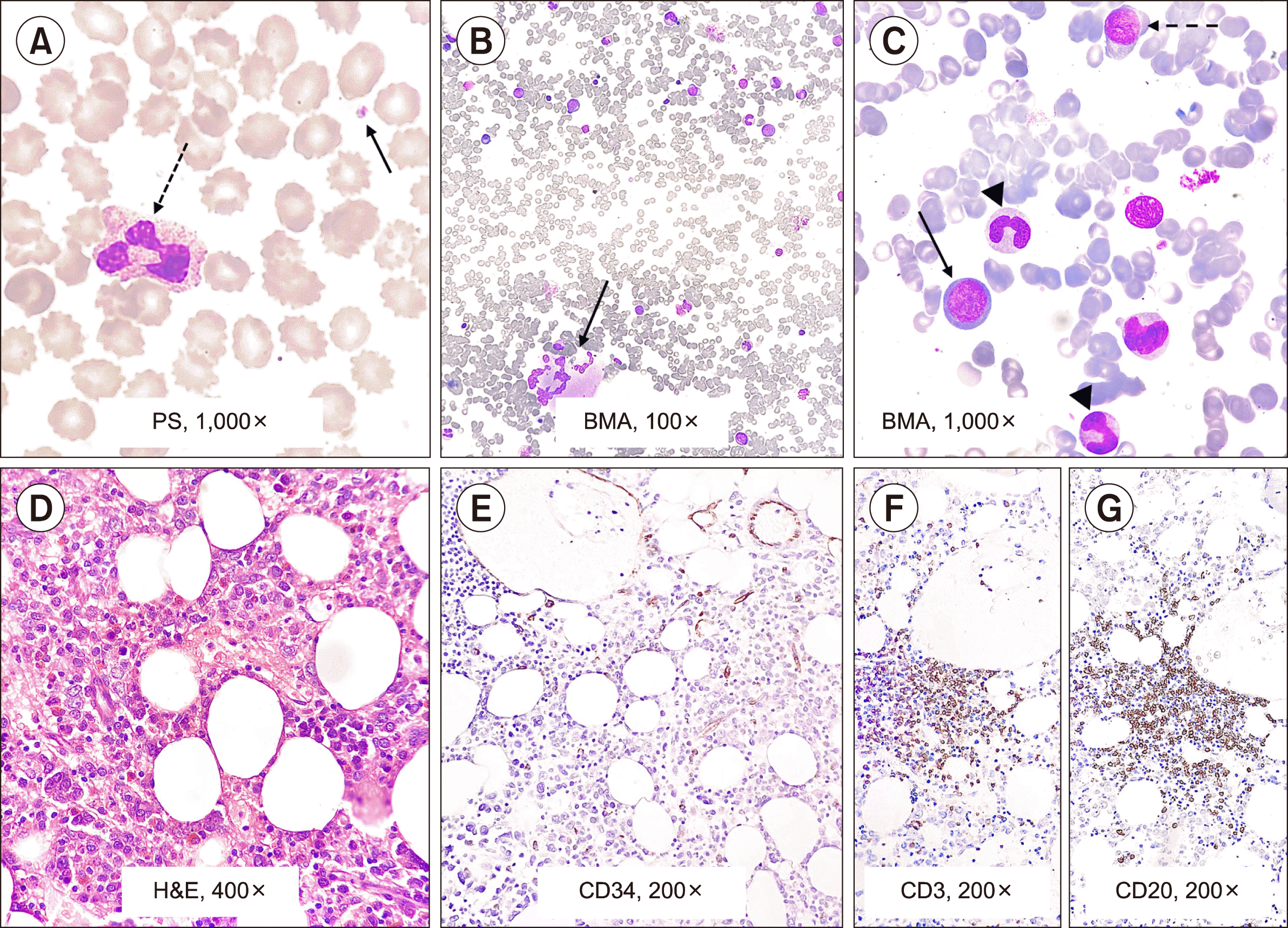
A 58-year-old male admitted with weakness, ecchymotic patches, bleeding gums for 2 days, and diarrhea 7 days prior, took ofloxacin 400 mg tablets once daily for 3 days. He was non-diabetic, non-hypertensive, and not on any other medications. His complete hemogram results include: hemoglobin: 55 g/L, total leukocyte count: 1.9×109/L, normal differential count, and platelet count: 12×109/L. Bone marrow examination revealed reduced megakaryocytes and suppressed myeloid maturation (A-G). History includes similar bleeding manifestations and weakness: 3 years prior, he took ofloxacin for diarrhea, developed pancytopenia, and received a whole blood and platelet transfusion. Considering the possibility of idiosyncratic adverse drug reaction secondary to ofloxacin administration (Naranjo Probability Score of 10), ofloxacin was stopped. The patient received supportive care with granulocyte colony- stimulating factor and transfusion of blood products and non-quinolone antibiotic support. Complete clinical and blood count recovery occurred within ten days.
Pancytopenia, though rare, has been reported with quinolones. Our case highlights the recurrence of similar symptoms after re-exposure to ofloxacin and complete recovery following cessation of ofloxacin, aided by supportive care.
Treating physicians’ awareness of adverse drug reactions of this commonly used antibiotic and the subsequent life-threatening complications, easily mitigated by drug cessation and supportive care, is vital.




 PDF
PDF Citation
Citation Print
Print


 XML Download
XML Download